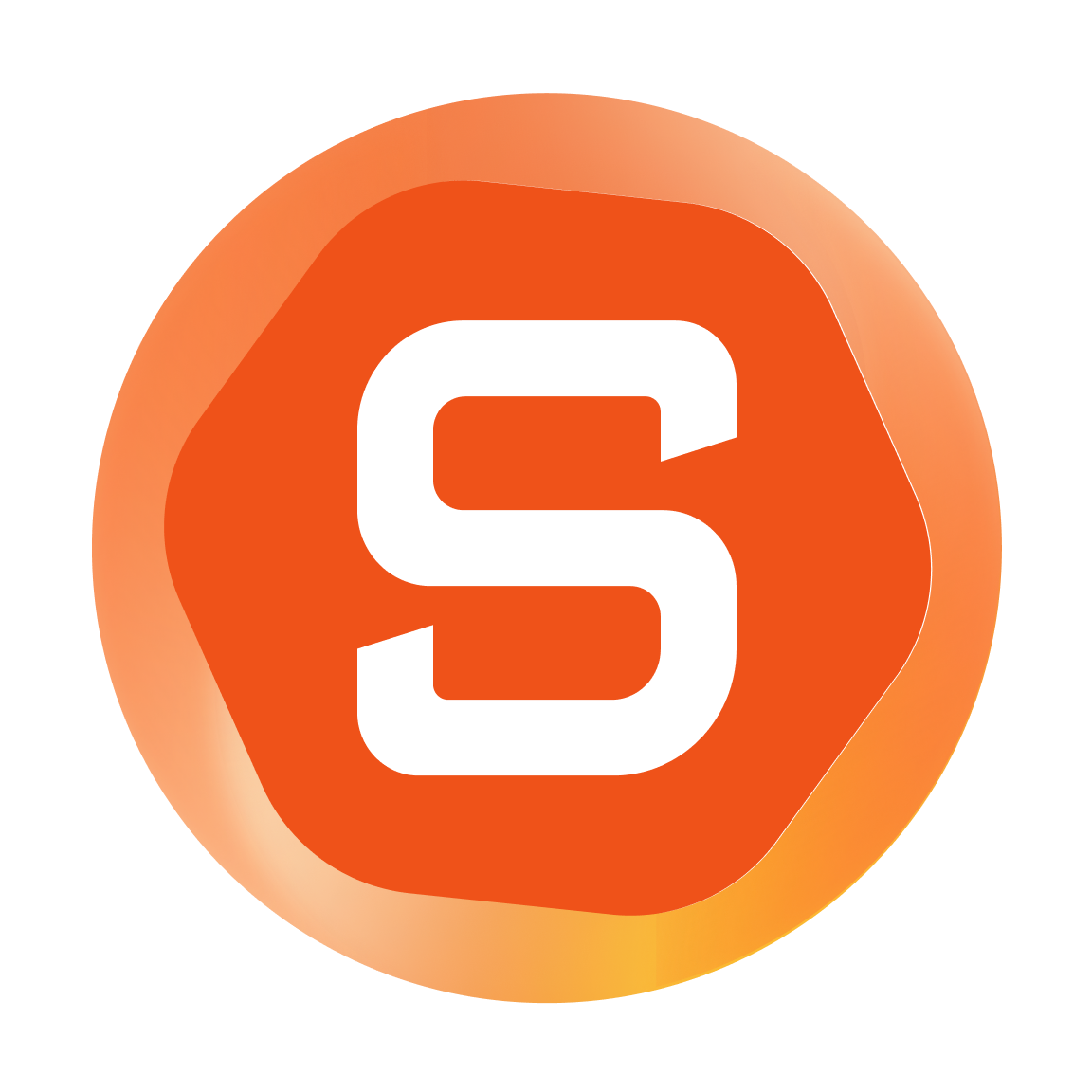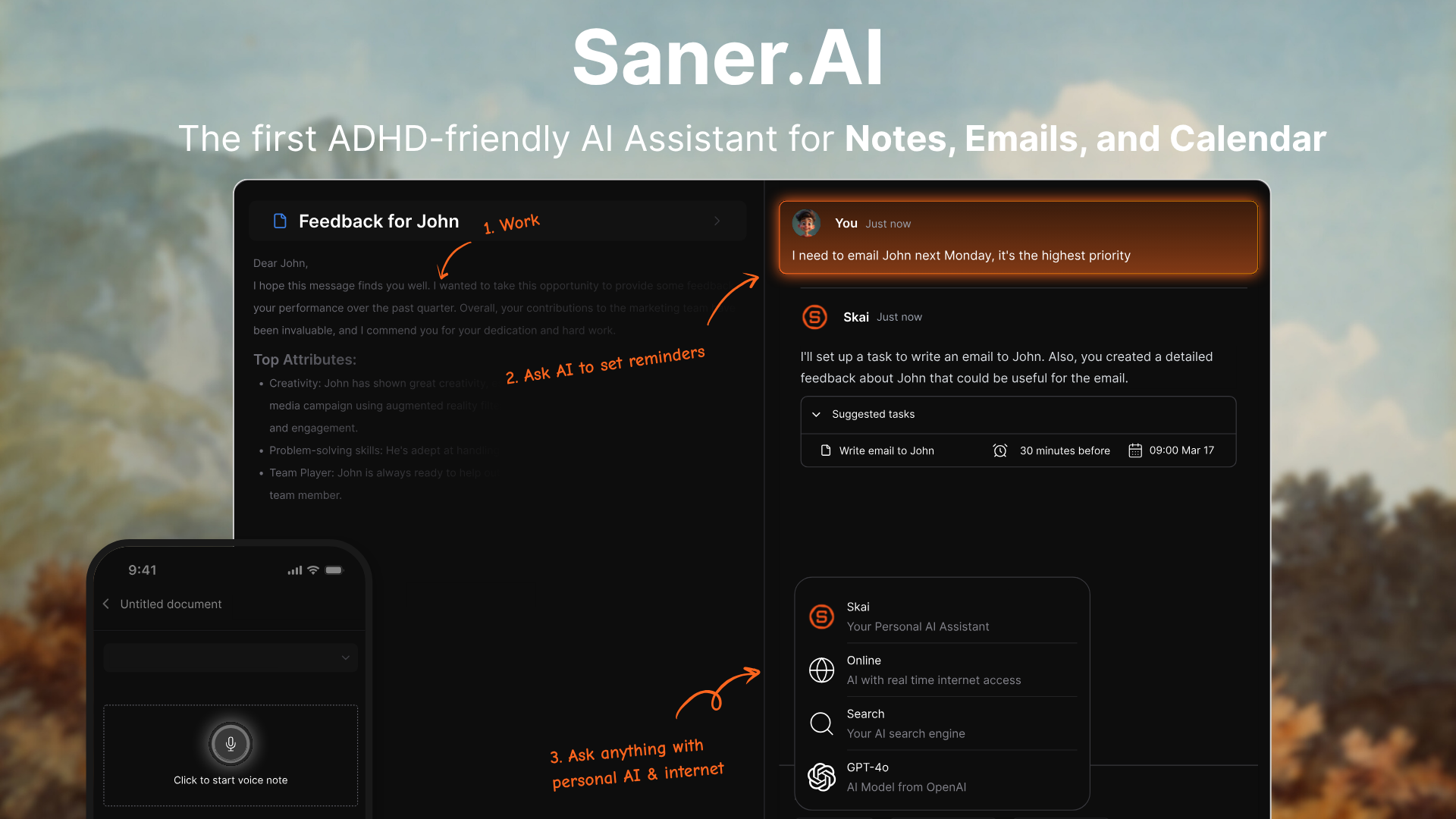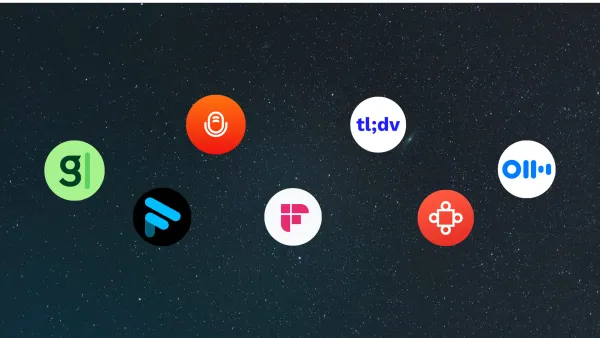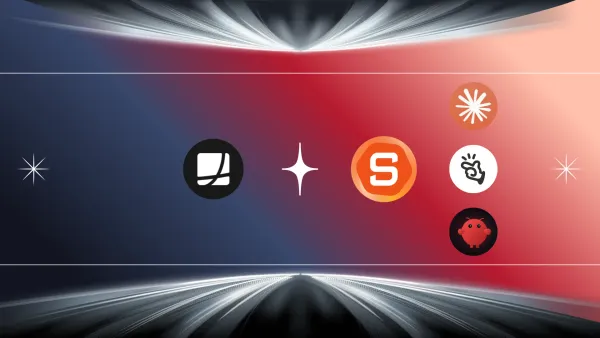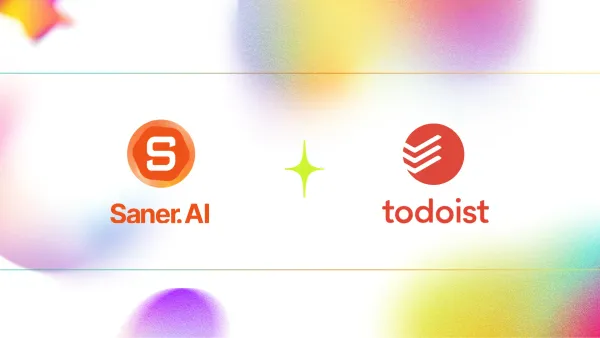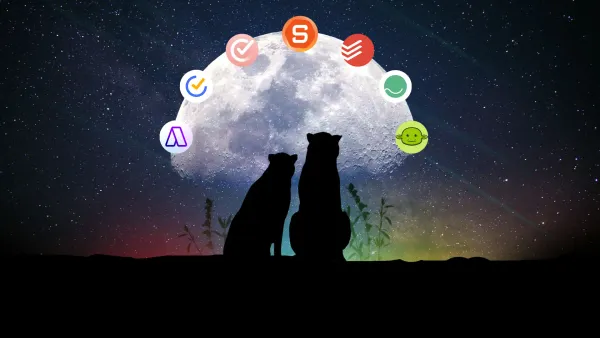Notion AI Agents Alternatives: We Test The 7 Best Apps in 2025
The Best Notion AI Alternatives in 2025 are: Saner.AI, NotebookLM, Obsidian with AI plugins, Coda AI, Mem.ai, Taskade AI and Tana
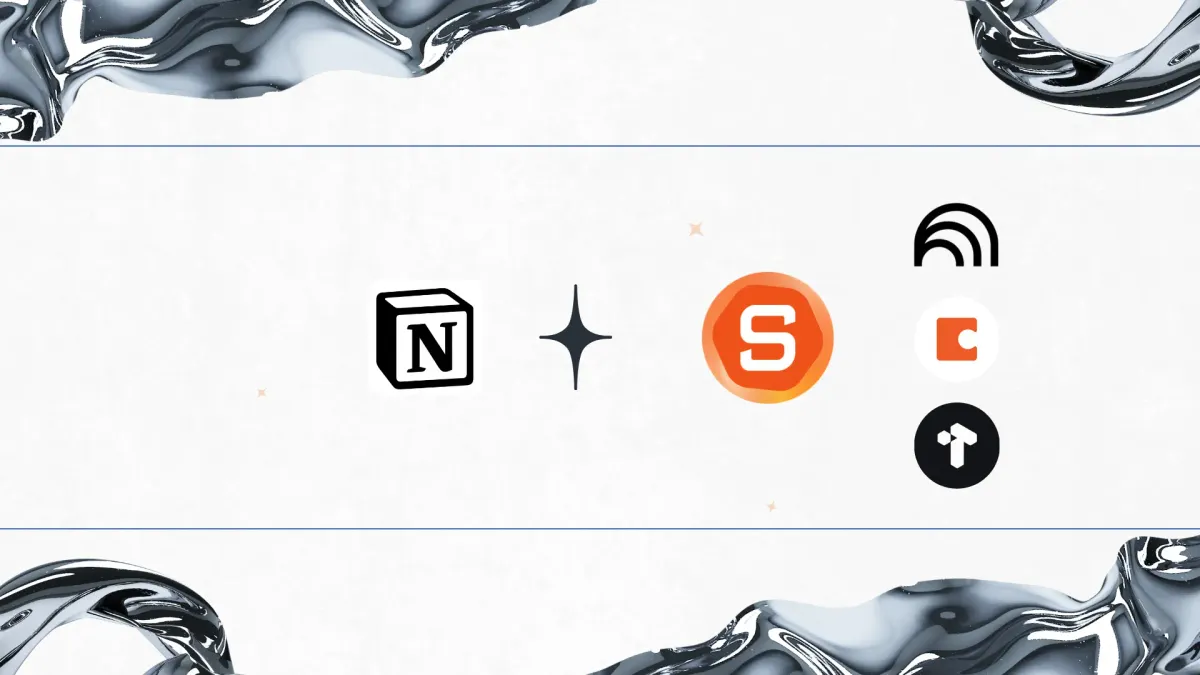
7 Best Notion AI Agents Alternatives To Improve Your Productivity
Tired of Notion AI’s Limitations? You’re Not Alone.
Notion AI is powerful - but it’s not for everyone.
Some users love the all-in-one experience. Others feel boxed in by:
- 💸 Expensive pricing for premium AI features
- 🧠 Shallow understanding of complex notes
- 🔒 Lack of transparency in how it processes your data
- 🌀 Overwhelming interface and learning curve
If you’ve ever thought “I wish Notion AI just did ___ better,” this post is for you.
In this guide, we’ll walk through the best Notion AI alternatives - tools that give you more control, better thinking space, and specialized strengths depending on how you work.
What Makes a Good Notion AI Alternative?
Here’s what we looked for when evaluating alternatives:
✅ Clear, distraction-free interface
✅ Strong AI capabilities (summarizing, querying, generating content)
✅ Real transparency (how your data is used and stored)
✅ Offline or local access for long-term reliability
✅ Pricing flexibility (free plans, pay-as-you-go, team tiers)
✅ Integration support (Google Drive, Slack, calendar, etc.)
✅ Context depth (understanding complex, long-term notes)
How I Chose These Alternatives
To make this list genuinely helpful (not just SEO fluff), I chose tools based on:
- Ease of use for non-techies and power users alike
- Affordability, including strong free plans or pay-as-you-grow options
- Real-world adoption, especially by ADHD-prone users, entrepreneurs, researchers, and remote teams
- Transparent AI behavior, not black-box magic
- Integration with daily tools like calendar, files, Slack, etc.
- Unique advantages over Notion AI - whether privacy, context-awareness, or automation
What are the Best Notion AI Alternatives?
The Best Notion AI Alternatives in 2025 are: Saner.AI, NotebookLM, Obsidian with AI plugins, Coda AI, Mem.ai, Taskade AI and Tana
🔍 Comparison Table: Best Notion AI Alternatives (2025)
| Tool | Free Plan | Unique / Standout Feature(s) | Best Use Case | Main Limitations |
|---|---|---|---|---|
| Saner.AI | ✅ Yes | Context-aware assistant that combines notes, tasks, email & calendar; ADHD-friendly; shows what it remembers and why | Busy professionals, ADHD-prone users, solopreneurs | Not suitable for complex project management |
| NotebookLM | ✅ Yes | Q&A over long-form content; audio overviews; pulls from your docs and sources | Students, researchers, knowledge workers | Limited offline use; lacks note structure or knowledge linking |
| Obsidian + AI Plugins | ✅ Yes | Local-first PKM with backlinks and graph view; full privacy control; huge plugin ecosystem | Privacy-focused users, tinkerers, networked thinkers | Learning curve; AI via plugins varies in quality |
| Coda AI | ✅ Yes | Combines docs, spreadsheets, automations; AI helps inside structured workflows | Teams needing internal docs, planning, or dashboards | Cost adds up per Doc Maker; complex for solo note-takers |
| Mem.ai | ✅ Yes | AI auto-organizes notes; fast capture and retrieval; conversational AI UI | People who want low-effort structure and recall | Less control over structure; limited offline capabilities |
| Taskade AI | ✅ Yes | AI + task/project management; real-time collaboration; visual outlines | Teams, students, collaborative note-takers | AI depth still developing; basic UX for solo deep work |
| Tana | ✅ Yes | Supertags + graph-based thinking; AI helps structure notes and meetings automatically | Advanced users building long-term knowledge webs | Steep learning curve; some features still evolving |
1. Saner.AI

Saner.AI is an AI assistant designed to help you think, plan, and organize without the chaos. Instead of juggling multiple tools, Saner unifies your notes, tasks, emails, and calendar into one searchable workspace - ideal for people who want clarity, not complexity.
It stands out as one of the best Notion AI alternatives because it skips the blocks, databases, and rigid templates. You just write or talk - and Saner helps you make sense of it all.
Key features
- Natural-language search and chat so you can ask things like “What did I say about Q4 strategy last week?” without digging through folders
- Task Assistant: Turns thoughts or messages into to-dos, reminders, or calendar events
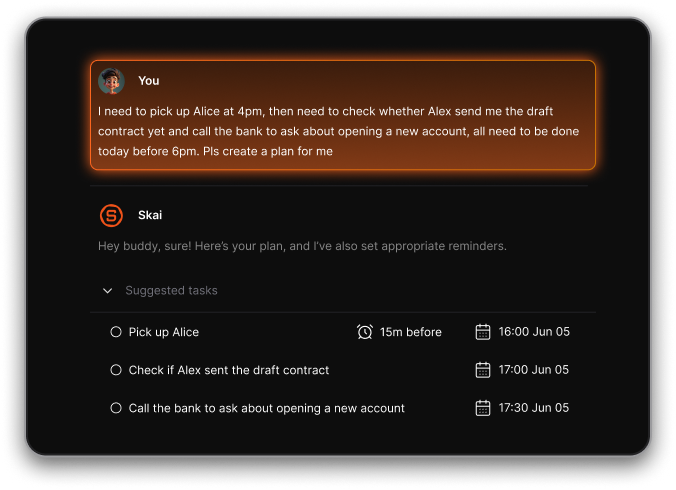
- Unified view for notes, email, calendar, and tasks - so everything’s in one place
- Smart Task Extraction: Dump your thoughts, and Saner turns them into structured tasks, with deadlines, steps, and reminders.
- Daily Planning: Every morning, it suggests an optimal day plan based on your information
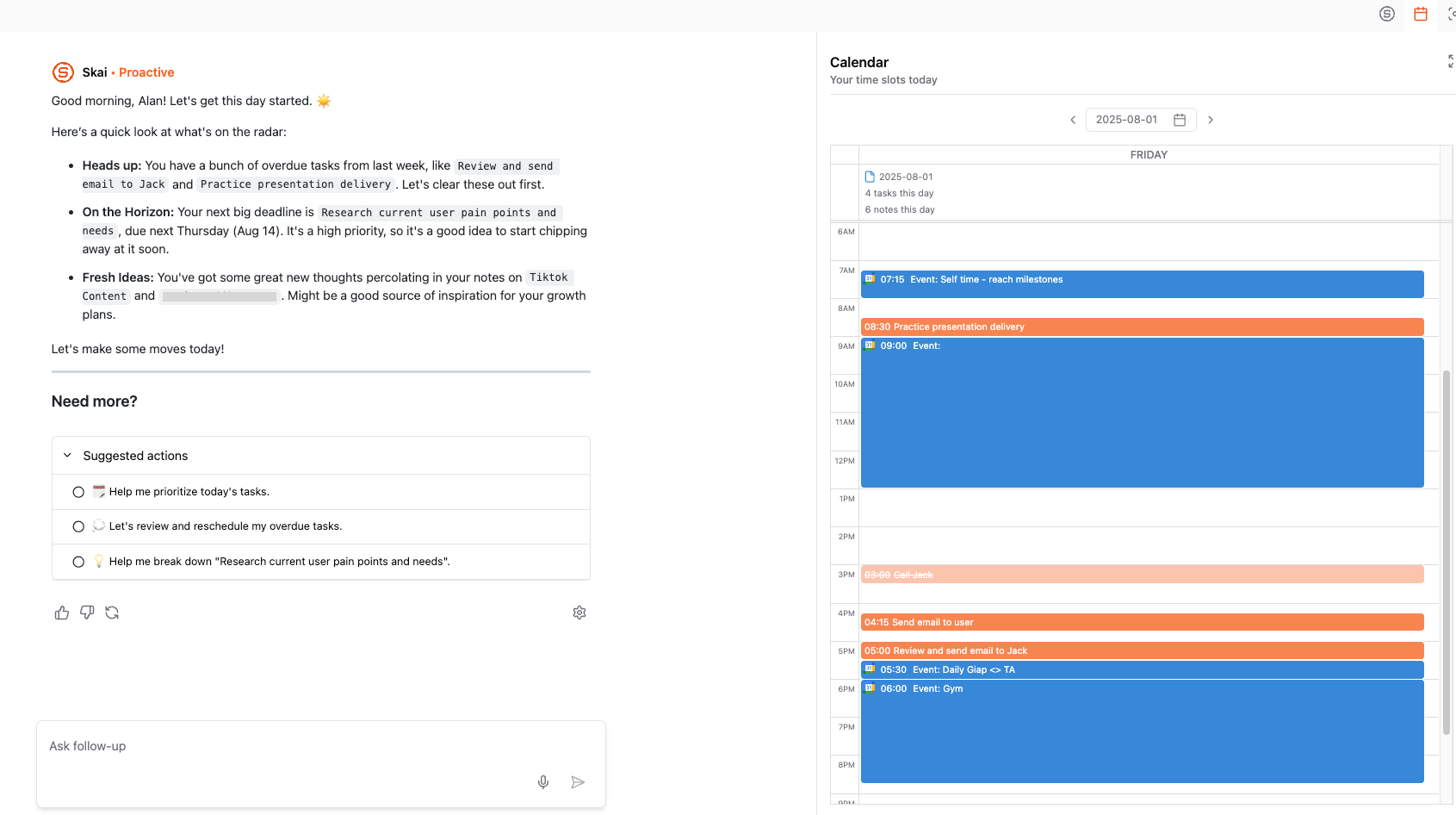
What I liked
- The conversational search is surprisingly helpful. You can just ask and it will do it for you
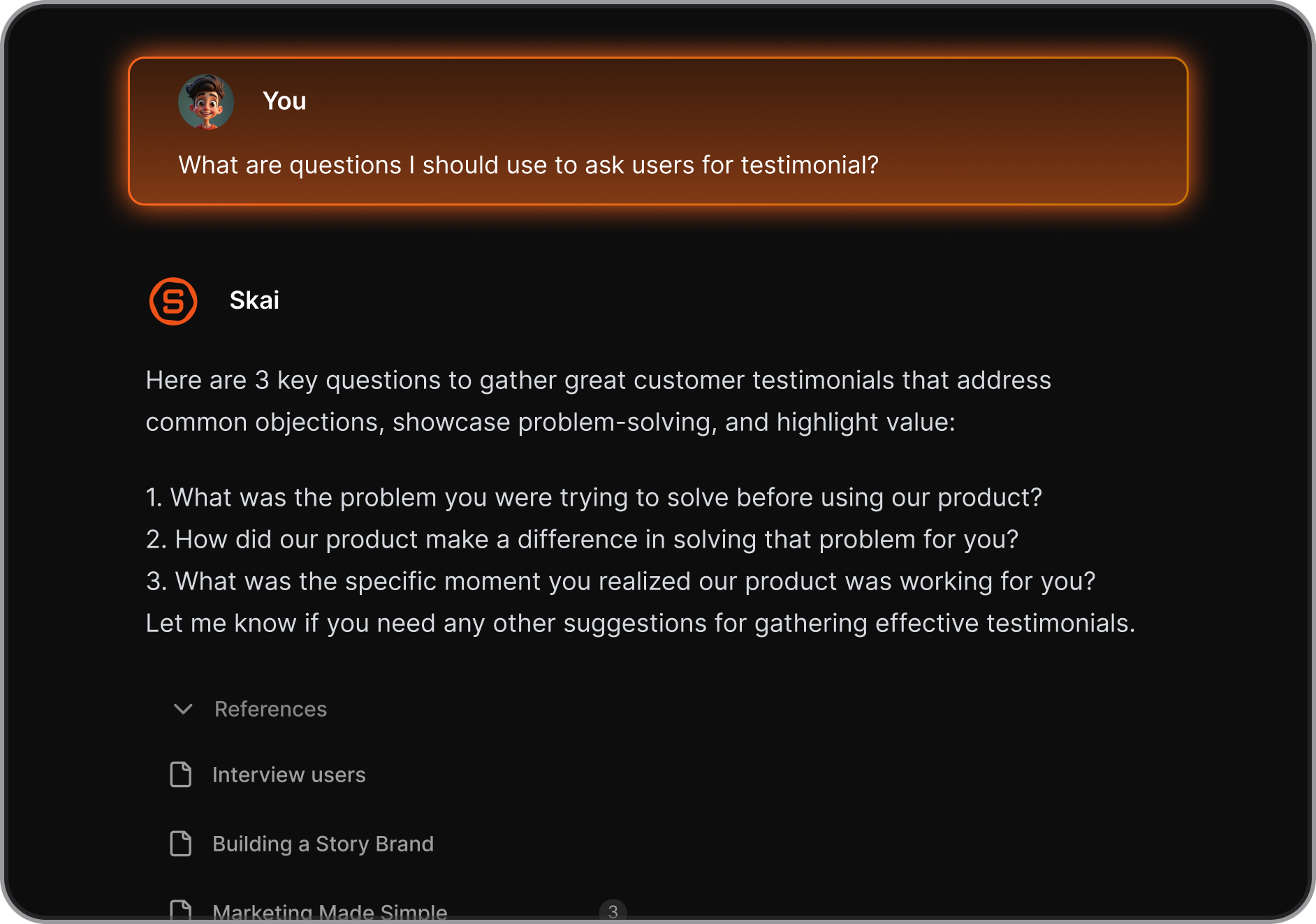
- It has a calm, clean UI. No blocks, tables, or endless formatting. Just a space to think and work
- The AI makes connections between ideas I forgot I had
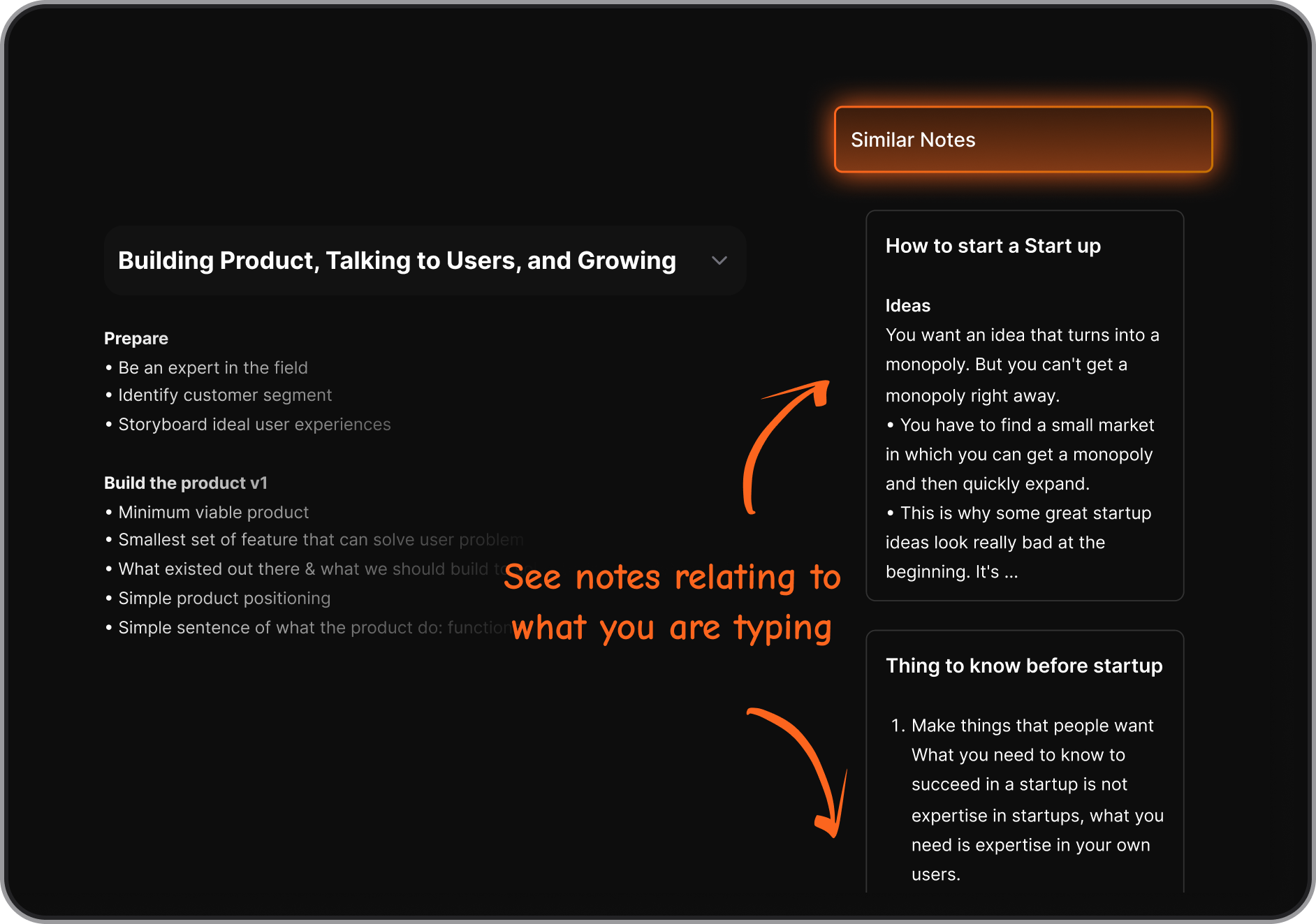
Cons
- Requires internet access for full functionality.
Pricing
- Free
- Starter: Monthly at $8/month, Annually at $6/month (with early user discount)
- Standard: Monthly at $16/month, Annually at $12/month (with early user discount)
Suitable for
- Professionals, founders, students, and creatives who feel overwhelmed by traditional productivity tools
- People with ADHD or executive dysfunction who want fewer tabs, fewer systems, and more clarity
- Users who want a smart workspace without building complex Notion setups
- Anyone looking for a calmer, faster way to capture, search, and act on their information
Saner.AI Reviews
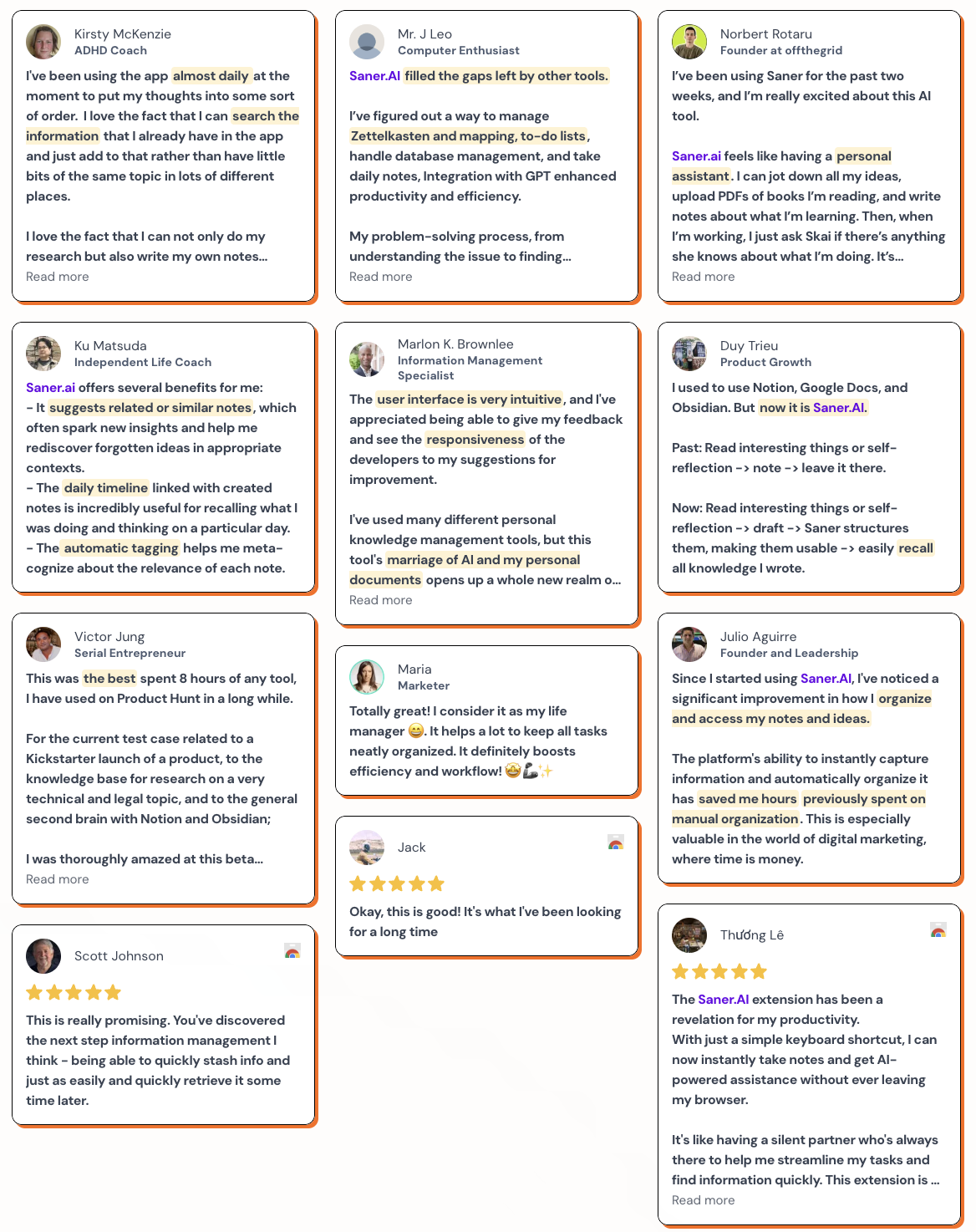
How to start
- Head to saner.ai and create a free account
- Connect your Gmail and Google Calendar for the best results
- Start by dumping your ideas, notes, or to-dos into the workspace
The Notion AI Alternatives for you notes, tasks and emails
2. Coda

Coda AI is the built-in AI assistant inside Coda, a flexible all-in-one workspace that blends documents, spreadsheets, automation, and apps. Coda AI helps you write, analyze, automate, and summarize - directly within your docs and tables. If you’ve ever wished Notion could handle structured data better or automate tasks inside your doc, Coda might be what you’re looking for.
Key features
- AI Assistant: Chat panel inside your doc that helps you brainstorm, summarize, or generate ideas
- AI Column: Automatically fills in rows in a table using AI based on other values in the same row
- AI Block: Pulls summaries or themes from other parts of the doc or table, and auto-updates when the data changes
- AI Reviewer: Gives real-time suggestions, feedback, or edits while you write
What I liked
- You can build full workflows, dashboards, or mini-apps with data, automation, and AI in one place
- Coda AI can reference tables and past content in your doc to generate better responses
- Templates, AI blocks, and building blocks make it easier to get started and customize without coding
What I disliked
- It has a steeper learning curve, especially if you’re used to simpler note-taking tools
- Large or complex docs can get a bit slow to load or use, especially on mobile
- Offline support is limited - you’ll need a stable internet connection to do most things
- AI usage is tied to credits per Doc Maker, and costs can add up quickly for teams that rely heavily on AI
Pricing
- Free plan available with basic features and limited AI credits
- Pro plan starts around $10/month per Doc Maker, includes more AI, version history, and branding options
- Team plan starts around $30/month per Doc Maker, adds advanced permissions and more collaboration tools
Suitable for
- Teams that need more structure and interactivity than a standard doc
- Product managers, marketers, and operations teams managing data-heavy projects
- People who want to build workflows or tools inside their documents
- Users who are comfortable learning a more powerful (but complex) system
How to start
- Head to coda.io and sign up for a free account
- Use a template to get started quickly (e.g., project tracker or meeting notes)
- Add an AI Column or try the AI Assistant to see how it works with your content
Coda reviews (source)

3. Mem
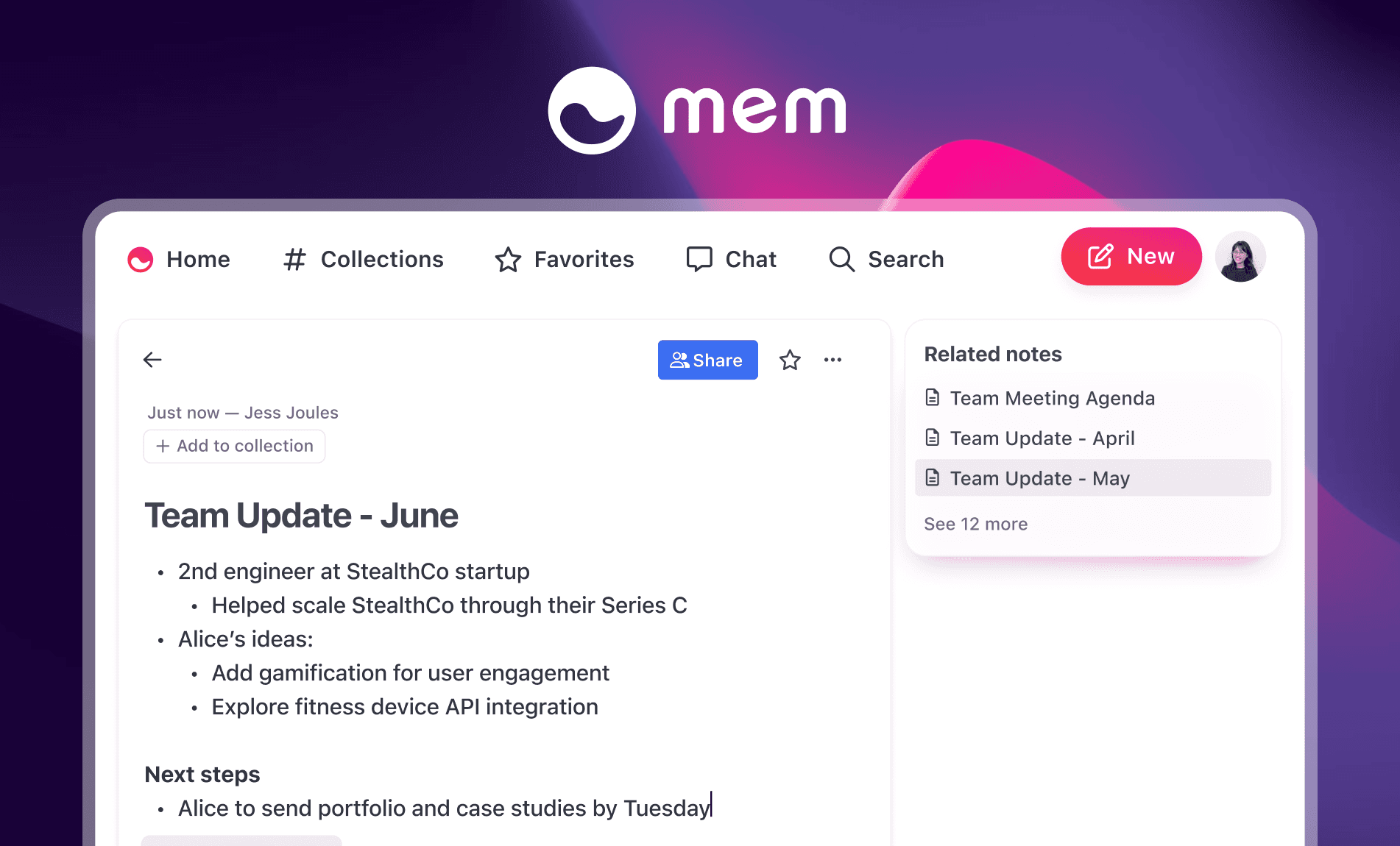
Mem.ai is an AI note-taking app that helps you organize your thoughts, meeting notes, and ideas - without the hassle of folders, tags, or manual sorting
Key features
- Mem Chat: Your own AI assistant that can search across your notes, summarize meetings, draft content, and answer questions based on your stored knowledge.
- Smart Search: Lets you search by meaning, not just keywords—great when you only vaguely remember what you're looking for.
- Auto Organization: Automatically links related notes and suggests “Collections” without requiring folders or labels.
What I liked
- The AI search is helpful when I don’t remember the exact words I used.
- Creating notes is quick
What I disliked
- The mobile app still feels limited - it’s not as reliable or feature-rich as the desktop version.
- If you’re offline, you lose access to a lot of features, which can be frustrating.
- The AI organizing system is powerful but not always predictable
- You cannot chat with AI to manage your tasks, calendars or emails like with Saner.AI
Pricing
- Free plan with basic notes and search
- Mem X (premium) at $8/month for AI features
Suitable for
- Creators, researchers, or professionals who store lots of meeting notes, links, and content drafts and need to recall them fast.
How to start
- Go to mem.ai and create a free account.
- Start capturing your notes or import your existing ones
Mem Reviews (Source)
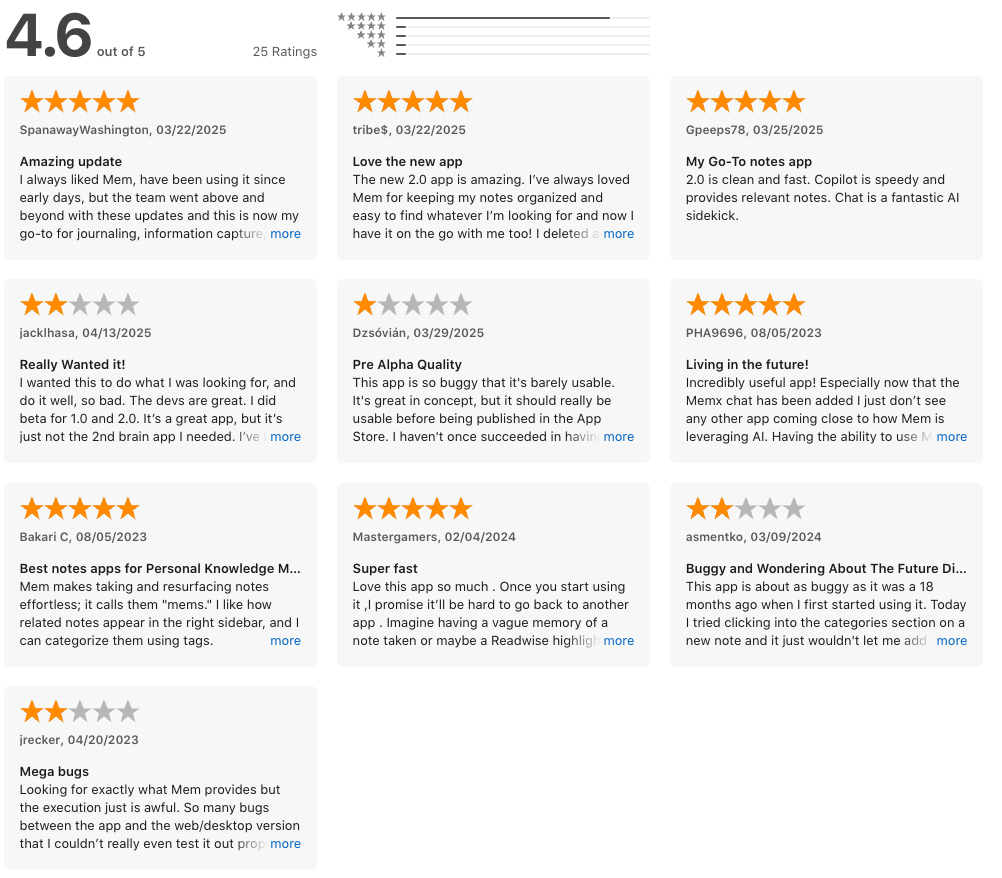
4. Obsidian
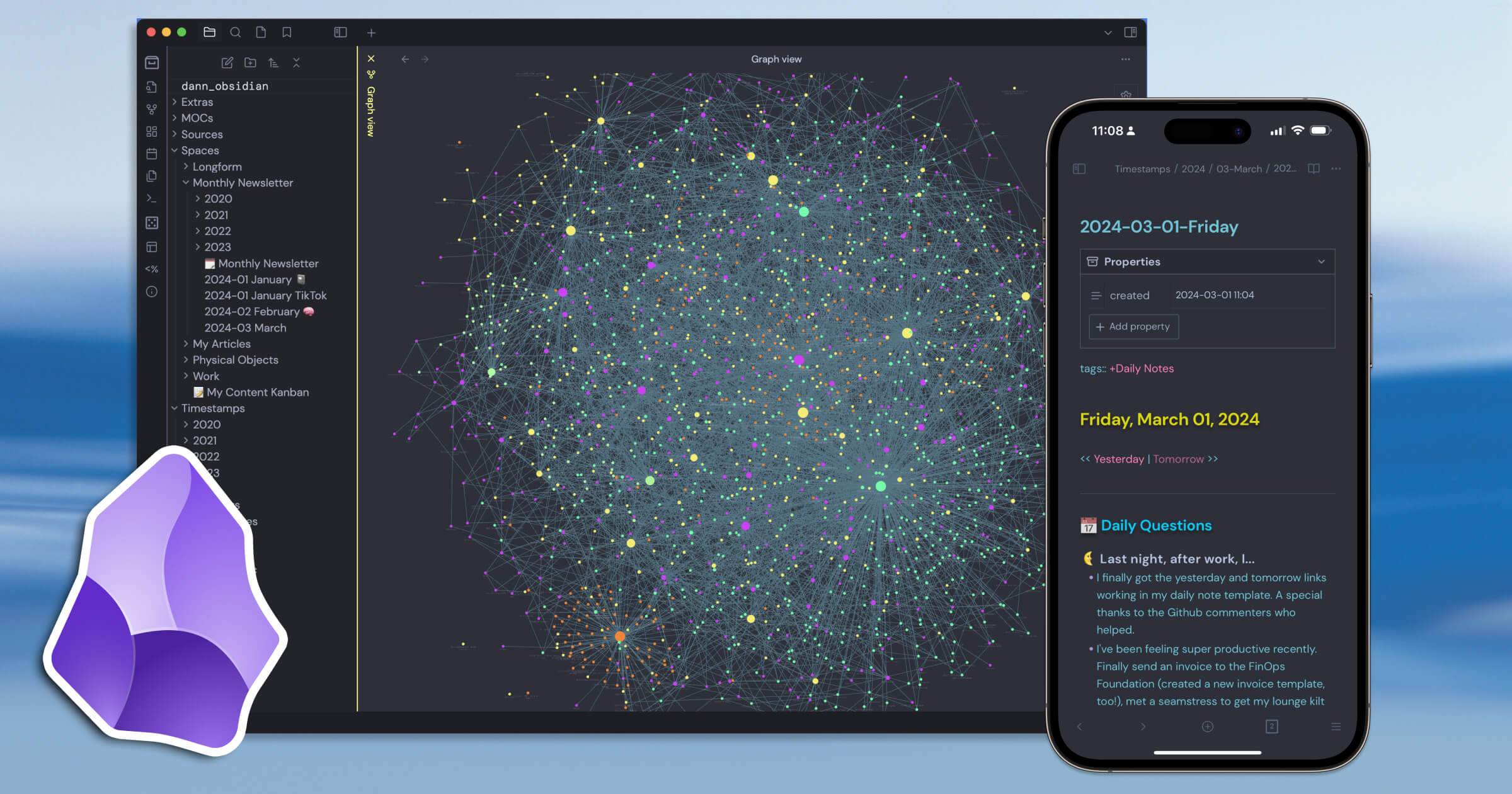
Obsidian is a local‑first, markdown‑based note taking / knowledge management app. With AI plugins added, it becomes a flexible assistant that can help you generate, summarize, search, and connect ideas across your vault—all while keeping your data under your control.
Key features
- Smart Connections: Finds related notes using context and meaning, not just keywords
- Text Generator: Lets you generate summaries, outlines, or new notes with a chosen LLM
- Vault-Wide Q&A: Ask questions and get responses grounded in your own notes
- Local/Private Model Support: Run models on your own machine for better privacy
What I liked
- The privacy and control are unmatched
- Plugins like Smart Connections helped me discover connections between notes I’d completely forgotten
What I disliked
- It’s not beginner-friendly - setting up AI plugins and models can be confusing at first
- Because different features come from different plugins, quality and UX can vary a lot
- Collaboration is very limited - Obsidian is not built for real-time teamwork or shared editing
- You cannot chat with AI to manage your tasks, calendars or emails like with Saner.AI
Pricing
- Core app: Free for personal use
- Obsidian Sync: ~$10/month for syncing across devices
- Obsidian Publish: ~$10/month for publishing your vault online
- Commercial license: ~$50/year if used in a business setting
- AI Plugin Costs: Depends on plugin and model used
Suitable for
- Researchers, writers, and thinkers who work solo and have lots of notes
- People who want full privacy and offline access
- Tinkerers who enjoy customizing their workflows
How to start
- Download Obsidian from the official site and create your first vault
- Enable “Community Plugins” in settings
- Search for plugins like “Smart Connections,” “Text Generator,” or “Copilot”=
Obsidian review (source)

5. Tana
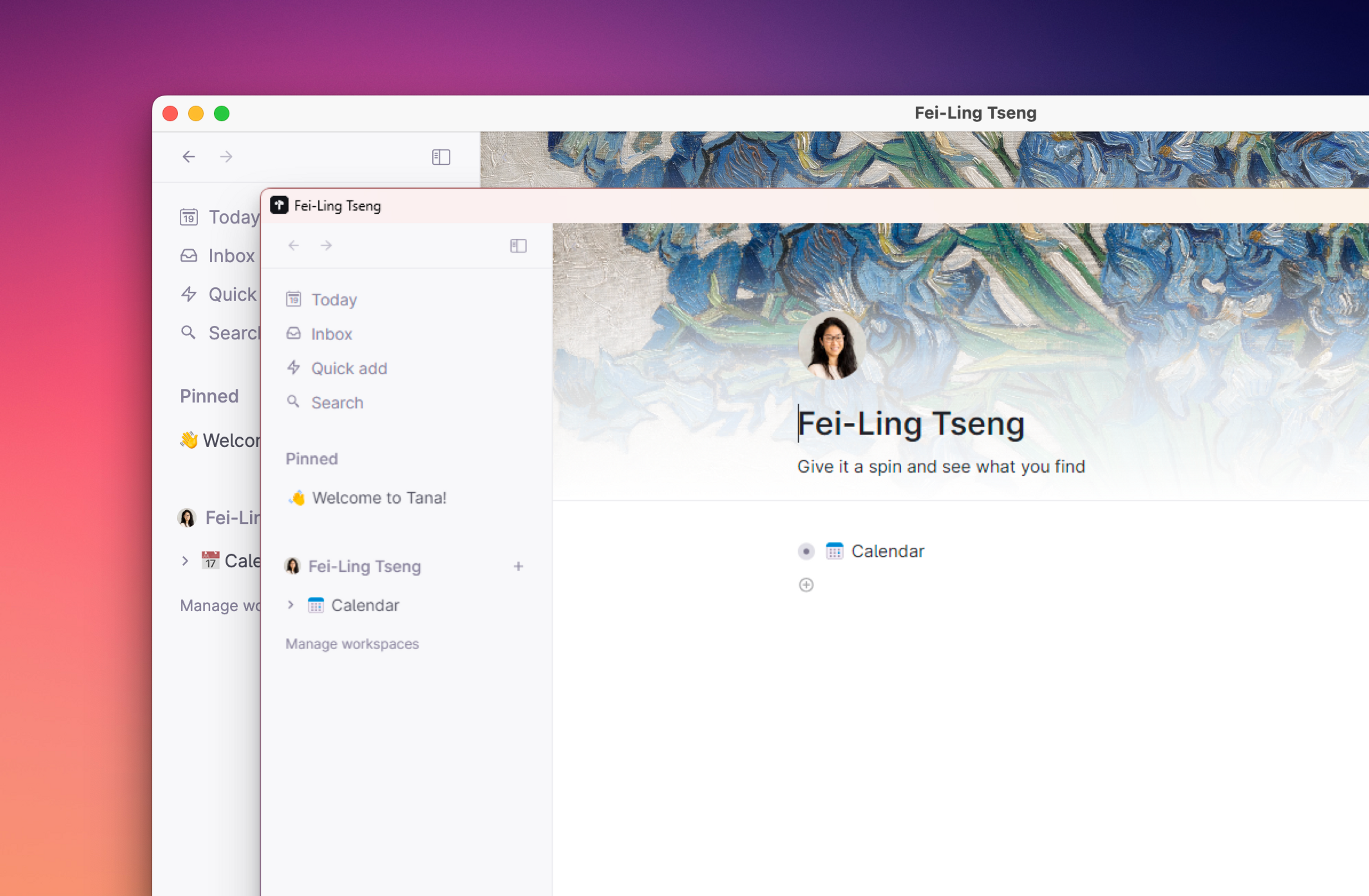
Tana is an AI-powered workspace that helps you capture ideas, meetings, tasks, and more in a connected, dynamic way. It blends note-taking, task management, and knowledge organization so your thoughts become actionable without having to juggle multiple apps.
Key Features
- Supertags & Objects: Structure your notes with dynamic tags that turn anything into a customizable object (e.g. task, project, meeting)
- AI chat & custom commands: Summarize content, auto-assign tasks, generate notes, or trigger automations using natural language
- Live transcription: Capture meetings or ideas with real-time transcription and automatic action item extraction
- Knowledge graph: Surface related content across your workspace without manually linking everything
What I liked
- The flexibility is unmatched
- The built-in AI feels native, not bolted-on
- The interface keeps improving: side panels, tabs, and visual enhancements make it feel polished without being overwhelming
What I disliked
- There’s a learning curve - understanding Supertags, fields, and custom commands takes time, especially if you’re new to tools like this
- Some features require setup - Tana works best when you’ve taken time to organize your tags and workflows upfront
- Mobile still lags behind desktop in UX; it's usable but not yet as fluid
- If you’re not using the AI features much, the paid tiers might feel unnecessary
Pricing
- Free plan available with core features
- Plus plan at $10/month
- Pro plan at $18/month
Suitable for
- Knowledge workers, writers, students, or researchers who want to connect their thinking across time
- Teams that run lots of meetings and want automatic summaries and task capture
- Power users who enjoy customizing their own system and workflow
How to start
- Head to tana.inc and create a free account
- Try out a few templates (like meeting notes or project management) to get familiar with Supertags
Tana Reviews (Source)

6. NotebookLM

NotebookLM is Google’s AI-powered research and note assistant. Instead of just storing notes, it lets you upload documents, videos, and links - then generates smart summaries, audio and video overviews, mind maps, quizzes, and more based on your source material. It’s great if you work with a lot of reading material or complex topics and want to make sense of it quickly.
Key features
- Source-grounded AI: Answers are based only on your uploaded files, not the whole internet
- Studio panel: Lets you generate summaries, mind maps, video overviews, audio explainers, and study guides
- Video Overviews: Narrated slide decks using text, quotes, images from your docs — great for visual learners
- Flashcards and quizzes: Automatically generates recall tools to test your understanding
What I liked
- The visual and audio overviews are surprisingly useful when reviewing dense material
- You can create multiple styles of outputs from the same notebook, which is flexible for different audiences
- Flashcards and mind maps make it easier to retain what you read, especially if you’re studying or doing research
What I disliked
- Notes aren’t as customizable or interconnected as in tools like Notion or Saner
- If your source docs are messy (bad formatting, no subtitles), outputs can lose quality
- It's built more for research and learning - not ideal for writing blog posts, managing projects, or tracking tasks
- You cannot chat with AI to manage your tasks, calendar, and emails like with Saner.AI
Pricing
- Free plan available with core features
- Paid plans exist (NotebookLM Plus or Pro) with higher limits and possibly more customization
Suitable for
- Students, researchers, or professionals working with lots of dense material
- Visual or auditory learners who benefit from overviews and mind maps
- People who want to quiz themselves or create briefings from what they read
How to start
- Go to notebooklm.google and log in with a Google account
- Upload your files (PDFs, Google Docs, YouTube videos with transcripts, web links, etc.)
NotebookLM review (source)

7. Taskade
Taskade AI is a collaborative AI-powered workspace that blends task management, note-taking, and real-time collaboration into one unified platform.
It’s a strong Notion AI alternative if you want more automation, flexible views, and built-in real-time collaboration.
Key features
- AI Agents: Create custom AI teammates that can summarize, brainstorm, plan tasks, or respond to questions in your workspace
- Workflow Generator: Use prompt-based generators to build task lists, meeting notes, agendas, and project plans instantly
- Multiple Views: Switch between list, kanban, calendar, mind map, org chart, and table views
- Real-time Collaboration: Chat, edit, comment, and co-work inside shared workspaces
What I liked
- The AI agents are useful - you can assign them tasks like summarizing meeting notes
- Real-time collaboration is smooth and feels integrated, especially with chat
- Works across devices without much setup, which is helpful when switching from desktop to mobile

What I disliked
- The free plan limits how much you can use AI agents or automations
- The note-taking features aren’t as rich as Notion when it comes to deep knowledge base creation
- Learning curve can be steep if you try to set up advanced AI workflows or agents from scratch
- Costs can stack up quickly if you rely heavily on AI or work with a large team
Pricing
- Free plan available with basic features and limited AI usage
- Paid plan starts at 20$/month
Suitable for
- Individuals and small teams who want smarter workflows and automation baked into task and note management
- Remote teams that need real-time collaboration and flexible project views
How to start
- Visit taskade.com and create a free account
- Choose a template or use the AI workflow generator to get started
Taskade reviews (source)

✅ Final Thoughts: The Best Notion AI Alternative Depends on You
Notion AI is a great generalist tool - but sometimes, you need more than “general.”
Maybe you want an AI that understands your context deeply.
Maybe you want more control, less overwhelm, or simply better focus.
Or maybe you’re just tired of paying premium prices for features you don’t fully use.
The truth is: there’s no one-size-fits-all AI workspace.
That’s why exploring alternatives - tools with unique strengths, transparent AI, and flexible workflows - is worth your time.
Here’s how to pick:
- Choose Saner.AI if you want a focused, ADHD-friendly assistant that spans your notes, tasks, email, and calendar in one calm place.
- Try NotebookLM for research-heavy work where you need AI to process deep sources.
- Go with Obsidian + AI if privacy and full data control are non-negotiable.
- Use Coda AI or Taskade if you collaborate often and want docs, tasks, and automation in one flow.
🚀 Most of these tools have a free plan - so test a few. See which one fits your brain, not just your budget.
And if you often find yourself overwhelmed by your tools instead of empowered by them…
Saner.AI might be your calmest, smartest next step.
Tired of Notion AI?
FAQ: Best Notion AI Alternatives
1. What are the best Notion AI alternatives right now?
Some of the strongest Notion AI alternatives include:
- Saner.AI – AI workspace that unifies notes, tasks, calendar, and email.
- NotebookLM – Google’s AI-powered research and note tool.
- Obsidian with AI plugins – Local-first knowledge base with optional AI add-ons.
- Coda AI – Smart documents with built-in AI for team collaboration.
- Mem.ai – Auto-organizing AI note app.
- Taskade AI – Lightweight AI project + task management.
- Tana – Networked note-taking with advanced AI support.
Each tool offers unique strengths - some focus on deep research, others on task execution or knowledge management.
2. Why look for Notion AI alternatives?
Notion AI is powerful, but it’s not for everyone. Common reasons people search for alternatives include:
- Pricing concerns (AI credits add up quickly)
- Complexity and steep learning curve
- Lack of offline or local-first options
- Limited transparency in how data is handled
- Desire for tools that are simpler, more specialized, or ADHD-friendly
3. Which Notion AI alternative is best for entrepreneurs?
- Saner.AI: Great for solo operators who need one calm workspace instead of juggling tools. It turns messy notes and chats into clear tasks.
- Coda AI: Strong for startup teams managing docs, tasks, and OKRs in one place.
- Mem.ai: Good if you want a “hands-off” note app that auto-sorts your thoughts.
4. Which Notion AI alternative is best for researchers and students?
- NotebookLM: Pulls insights directly from PDFs, notes, and docs - like having a research assistant.
- Obsidian with AI plugins: Ideal for long-term knowledge building, with full control over your vault.
- Tana: Great for linking concepts and building a connected knowledge graph.
5. Which tool is best for ADHD or focus challenges?
- Saner.AI: Built by ADHDers, it reduces context switching by combining todos, emails, and notes in one place.
- Taskade AI: Simple enough not to overwhelm, while still offering AI-powered lists and outlines.
6. Are there free Notion AI alternatives?
Yes, most tools offer free or starter tiers:
- Saner.AI – free plan with task reminders + natural language note search
- NotebookLM – free with a Google account
- Obsidian – free core app; AI plugins may be paid
- Mem.ai – free tier with limited AI features
- Taskade – free plan with AI limits
7. Do these alternatives support real-time collaboration like Notion?
- Coda AI and Taskade AI: Both strong for team collaboration.
- Saner.AI: Currently optimized for personal productivity, with team features developing.
- NotebookLM: Single-user focus, but shareable docs via Google ecosystem.
8. Which Notion AI alternative is best for executives or managers?
- Saner.AI: Works as a personal command center - surfacing key notes, tasks, and follow-ups.
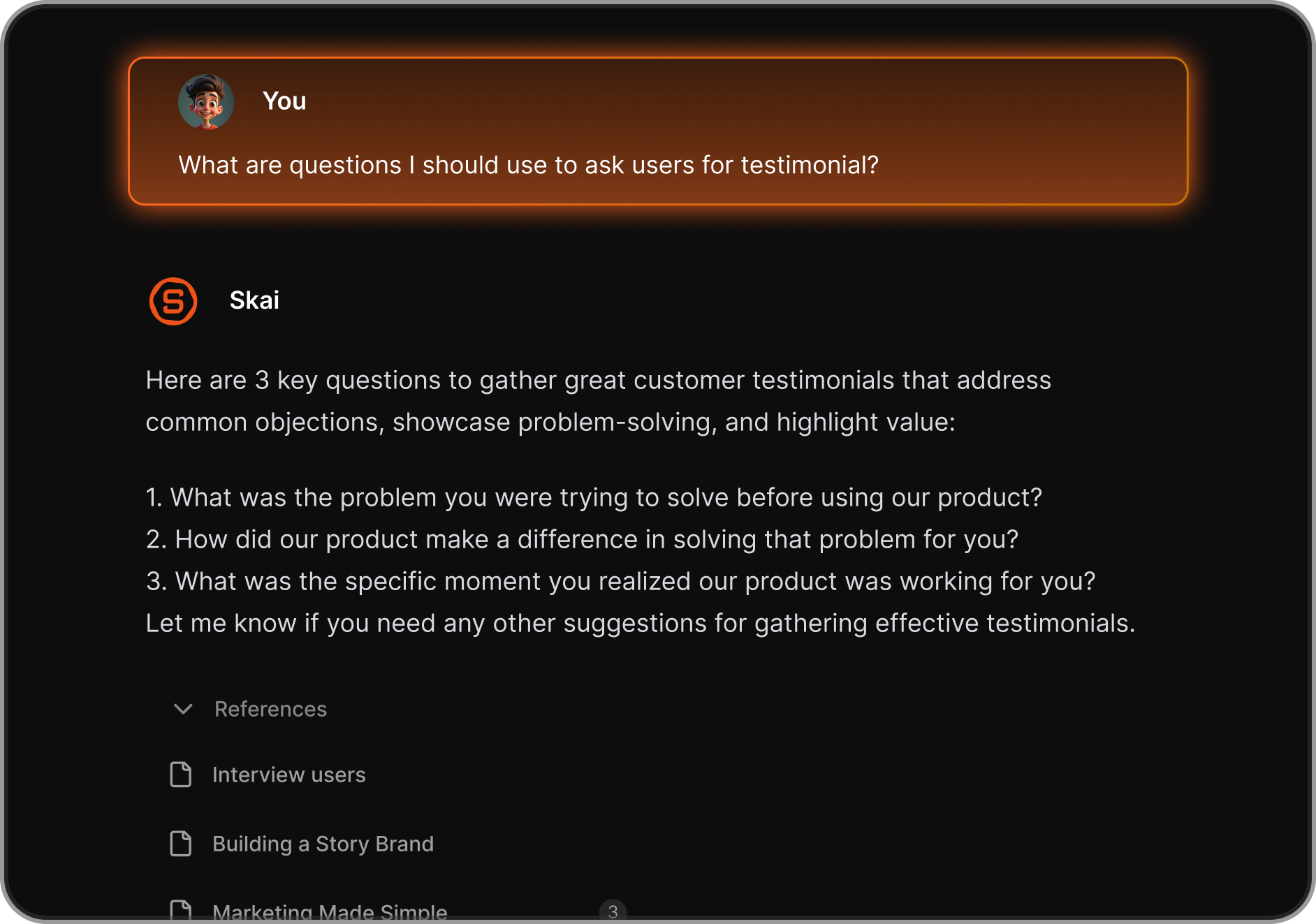
- Coda AI: Better for managers who need cross-team dashboards and OKR tracking.
- Tana: Useful for leaders who like structured, interconnected thinking.
9. Which Notion AI alternative works offline?
- Obsidian: Local-first, so you control your data offline.
- Tana: Offers partial offline support, with sync once reconnected.
10. Which tools integrate best with Gmail, Google Drive, or Slack?
- Saner.AI: Connects directly to Gmail, Calendar, Drive, and Slack.
- Coda AI: Strong Google Drive + Slack integrations for teams.
- NotebookLM: Pulls directly from Google Docs and Drive.
11. Which tool is best for daily planning and task execution?
- Saner.AI: Turns your chats and notes into daily action steps.
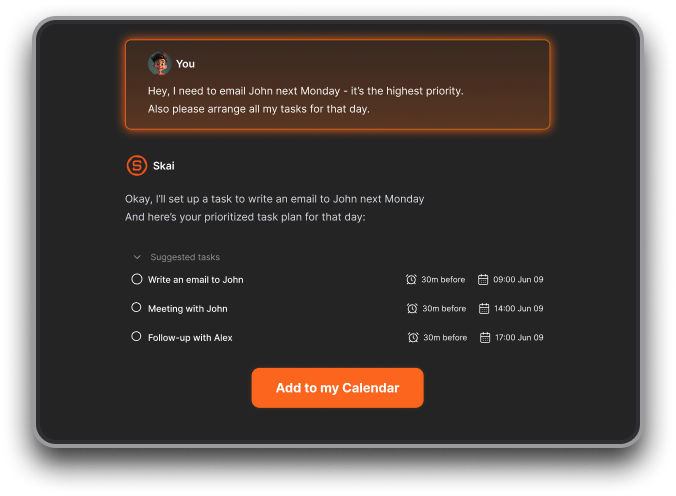
- Taskade AI: Lightweight daily lists and collaboration.
- Coda AI: Best if you want planning connected to team dashboards.
12. Can I migrate my Notion data to these alternatives?
- Obsidian: Can import Markdown exports from Notion.
- Coda: Supports CSV and some API-based imports.
- Saner.AI: Allow importing notes and tasks, though setup may vary.
13. What’s the future of Notion AI alternatives?
Generative AI search is pushing users toward tools that:
- Understand context, not just keywords
- Reduce cognitive overload
- Offer calm, distraction-free workspaces
- Combine AI with transparency and trust
Expect more cross-tool integrations and proactive AI assistants like Saner.AI that help you follow through, not just brainstorm.
14. Do Notion AI alternatives support image uploads and AI analysis of images?
Some users want AI that can understand pictures, not just text.
- NotebookLM: Focuses on text and documents, not image recognition.
- Saner.AI: Optimized for notes, tasks, and context. You can upload images and convert that to text
- Coda AI: Supports embedding images, but AI works mainly on text.
- Obsidian + plugins: Limited image AI unless using third-party add-ons.
If image analysis is critical, you may need a dedicated AI like Gemini or Perplexity in parallel.
15. What are the most affordable or free Notion AI alternatives?
- NotebookLM: Free via Google Workspace.
- Saner.AI: Free plan with core features (task reminders, note search).
- Obsidian: Free core app; pay only if you want sync/AI add-ons.
- Mem.ai & Taskade: Both offer free starter tiers with limited AI.
16. How steep is the learning curve for these alternatives compared to Notion?
- Saner.AI: Minimal setup; just start typing or talking.
- NotebookLM: Easy for Google users, feels like Docs with AI.
- Obsidian: Steeper learning curve due to plugins/Markdown.
- Coda AI: Moderate—requires learning docs + formulas.
- Mem.ai: Easiest—auto-organizes without much setup.
- Tana: Powerful but takes time to grasp node-based workflows.
17. Which tool is better if I mainly use Notion for tasks and to-dos?
- Saner.AI: Turns notes + chats into tasks automatically.
- Taskade AI: Lightweight to-do lists with AI summaries.
18. Do alternatives match Notion’s formulas and custom database views?
- Coda AI: Yes, supports formulas, filters, and custom views.
- Tana: Offers advanced structuring with AI but less “spreadsheet-like.”
- Obsidian, Saner.AI, Mem.ai, Taskade: Focus more on notes + tasks than heavy formulas.
19. Is it worth paying for Notion AI, or are free tools enough?
Reddit users often debate this. If you only need:
- Quick summaries → ChatGPT free tier might suffice.
- Personal productivity → Saner.AI’s free plan works well.
- Research → NotebookLM is free and powerful.
But if you love databases + team collab, Notion or Coda’s paid tiers may still be worth it.
Stay on top of your work and life
